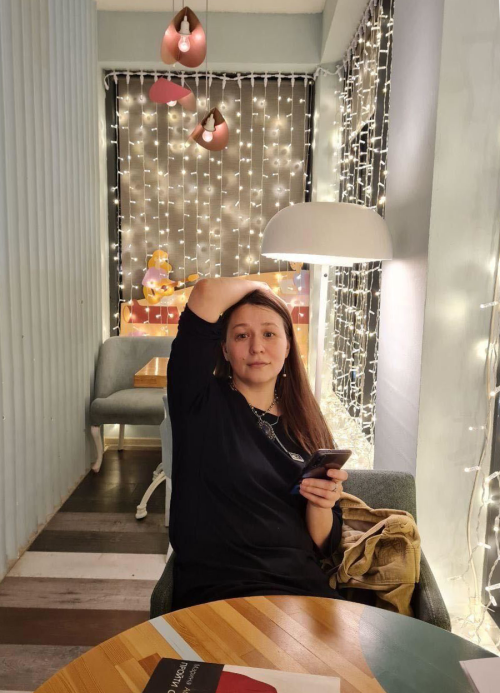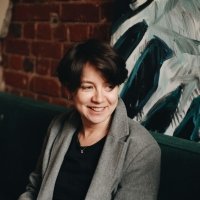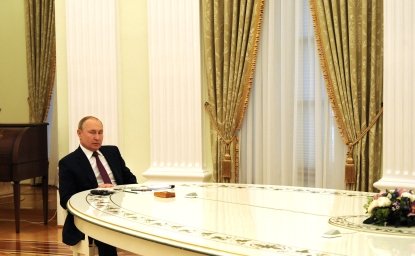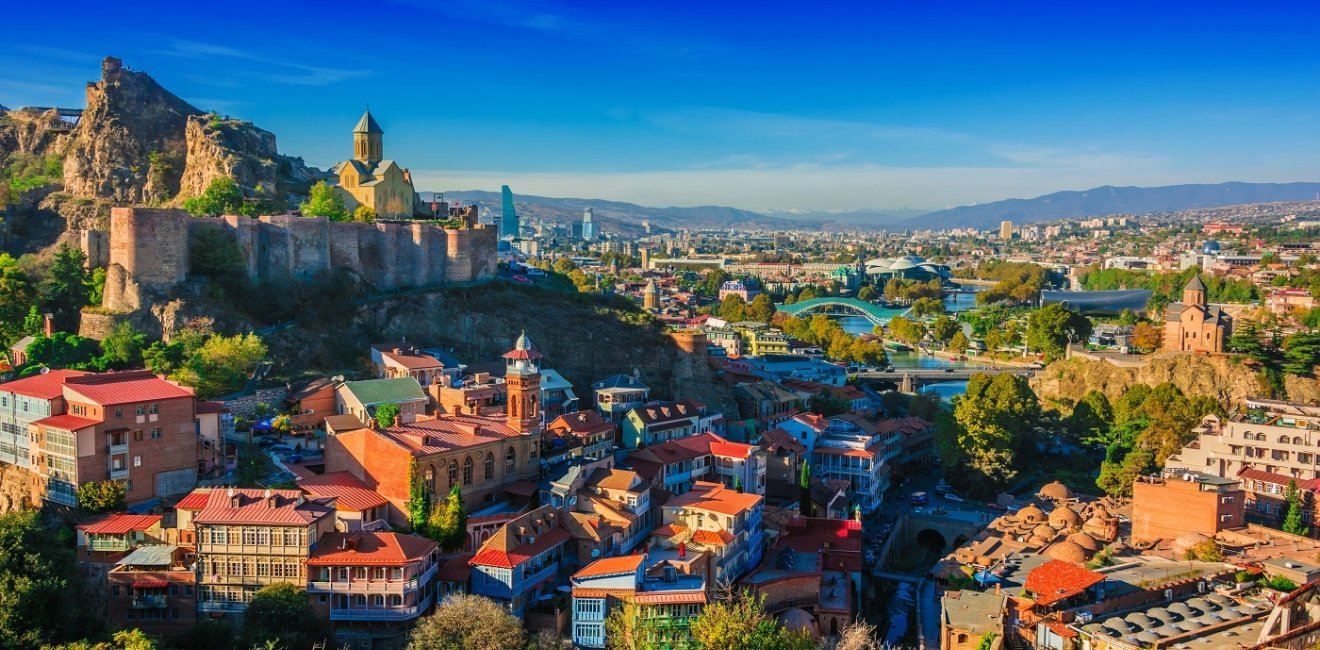
A blog of the Kennan Institute
BY EKATERINA KRONGAUZ
Masha, age forty-two; Camilla, twenty-one; Anna, eleven; Seva, six
Last February, Masha heard a lot of eerie talk about war on TV. She began telling her husband that war sentiment was heating up on TV, and that could mean they were getting ready for an actual war. Her husband said Masha was a fool.
On February 24, Masha wrote to her husband, who works in another city, that the war had begun. “I wanted him to take his words back. He did. But I'd rather be a fool."
In February, Masha's two grandmothers died. On the eve of the war, Masha met with a friend and remembered her grandmothers.
“I didn’t go to the memorial ceremony because I don’t connect well with my family. They believe that Putin is a great leader and the father of the nation. I did not go to the ceremony. I went to a café instead, with a friend. We have this divination game—we take a book, choose a random page, a random line, and read the line out loud as a sort of ‘oracle.’ Marina Abramović’s autobiography happened to be in that café. I picked it up, thought of a page, and —you won’t believe it—I happened on the following sentence: ‘Hitler drove out the youth first, and then began to drive everyone, right down to the old people.’ I didn’t understand what it was all about and what it had to do with me. But after two weeks I remembered it with horror.”
Masha, now forty-two, lived in a rented apartment in Elektrostal, an industrial town an hour’s train ride east of Moscow. The last few years have been very difficult for her. She went through a difficult divorce from an abusive husband and found herself alone and without a job in a small town with three children on her hands.
To cope and to earn a living, Masha, a linguist by training, started a theater group for children and adults. She began to teach her own course, "Culture and Us," in a small family school.
On Thursday, February 24, a new group of children met for the first time. “I always thought that I didn’t want to work with young children at all, but then I realized that this was my salvation.”

She heard someone mention leaving Russia for the first time on February 24, when a friend told her he was leaving. “Since 2012, I have played with the idea of living in a different country. But in recent years I have been busy surviving. It was only in February that I started living better and supporting myself and the children. I married two years ago. I can’t plan lunch, with everyday life so difficult, how can I move?” Masha said all this to a friend, explaining to him why leaving was not an option for her. To which the friend replied, “You grow where you direct your attention.”
Masha had studied linguistics and art history. She was fond of socialist realism, the preeminent Soviet artistic style. “I read a lot about totalitarianism and how it changes a person, breaks them. I read a lot about those who left the country and those who stayed. This repressive machine does not stop by itself, it can only accelerate. My children began to talk about the war. And I caught myself starting to talk about it more quietly, and then even in a whisper.”
After that, Masha started a Telegram chat with friends, and called it “Leaving?” Masha’s husband did not approve, and they began to quarrel, so much so that they almost divorced. Masha chose Georgia to move to—in the first place, you can get there, and second, it seems inexpensive, and no documents are needed. Third, Masha had never been to Georgia.
Masha had no savings, but one of her late grandmothers had left a one-and-a-half-room apartment in a “Khrushchev”-style apartment building in Elektrostal, to belong equally to Masha and her sister.
When Masha told her mother and sister about her plan to move to Georgia, her sister said, “They will kill you there. The children will simply be slaughtered. First they will rape you, and then they will slaughter you,” but nevertheless agreed to sell their grandmother’s apartment and divide the money in half. From the sale of the apartment, and after exchanging the rubles for dollars at a particularly disadvantageous rate (as obtained for a couple of weeks in March), Masha got a little less than $20,000.
Masha bought the cheapest possible tickets for May 4, a month and a half away, and began to finish preparations for departure. “What does it mean to be prepared? I have nothing—children, a stage, and four spotlights. I've been in rented apartments all my life." So getting ready meant finishing the series of performances she had started.
“We put on five shows before leaving—four children and one adult. The adults put on a performance that they themselves came up with. It’s called the ‘Shop of Emotions.’ This is a place where you can come and take emotions or leave unnecessary ones: love, for example. And there are different characters.
“For example, an angry man came. He did not know what he needed, and the saleswoman advised him to take tenderness. He took it, he liked it, he came back for more tenderness and took more than he needed. Then a shy woman came. She asked for sharpness and brightness. She took everything and left in a rage. It turned out that they were husband and wife.”
At the Georgian border, problems arose with Masha’s eldest daughter, Camilla. When Camilla was still in school, she had worked as a volunteer for Alexey Navalny’s Anti-Corruption Foundation, and then the Interior Ministry’s Center for Combating Extremism, Center "E," became interested in her. They went to the school and interrogated her without adults present.
The Georgian border guards questioned Camilla for several hours, showing her printouts of articles about her. Camilla cried and convinced the border guards that she had come with her mother on vacation.
Since age eighteen, when she was interrogated by the Center “E” agents, Camilla has been in a deep depression. Now twenty-one, she has problems sleeping and cannot work.
In Georgia, Masha laughs. She has started drinking and smoking, although in Elektrostal she ran and practiced yoga. Neither of the children’s fathers helps Masha. Masha believes that there will be enough money to remain in Georgia until December. The rent is about $400. Now, for the summer, Masha and her friend have agreed with a hotel in the Black Sea resort Batumi that they will organize children's entertainment for guests in return for food and housing.
“I think I will open a theater studio in Tbilisi. Somehow—anything. Everything will work out. People somehow make do. Things worked out in Elektrostal and will work out in Tbilisi. There are many good people here. And now everyone is in such a state that they get to know each other faster, make contacts faster. I think it's a great experience to feel under the cover of heaven."
The opinions expressed in this article are those solely of the author and do not reflect the views of the Kennan Institute.
Author

Independent Journalist

Kennan Institute
The Kennan Institute is the premier US center for advanced research on Eurasia and the oldest and largest regional program at the Woodrow Wilson International Center for Scholars. The Kennan Institute is committed to improving American understanding of Russia, Ukraine, Central Asia, the South Caucasus, and the surrounding region though research and exchange. Read more

Explore More in The Russia File
Browse The Russia File
The Kremlin’s War Bubble and Its Hidden Vulnerabilities

Russian Media in Exile Finds Purpose and Global Relevance

Where to Find Ukraine in Trump’s Second Inaugural Address



